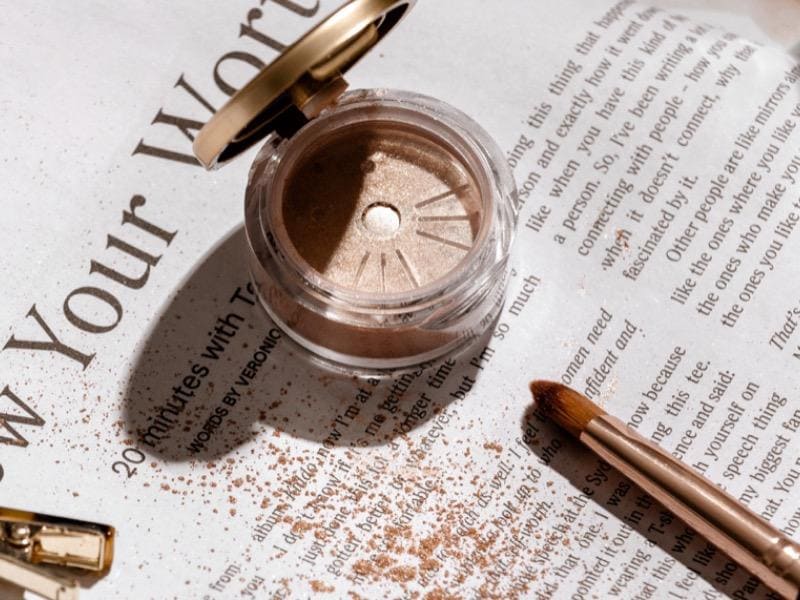In the first part of this article series, we discuss how makeup brands are now advocating for more self-acceptance amidst the pandemic as opposed to promoting unrealistic beauty standards.
Earlier this year, Selena Gomez released a makeup line called ‘Rare Beauty’ to shape conversations around beauty, self-acceptance, and mental health. The actress/singer, who earlier this year revealed her bipolar disorder, thinks that as women, most of us have a tendency to self-scrutinize and feel pressured to strive for perfection when it comes to our appearance. And that oftentimes we think that using makeup can help us get there.
Rare Beauty aims to challenge this view. The brand wants to familiarize the idea that makeup has the power to help us accept ourselves and show our unique individualities. They also encourage us to do so with a positive mindset. For instance, some of the brand’s products are named with cute, motivational messages like ‘Always an Optimist Illuminating Primer’, ‘Positive Light Liquid Luminizer’, and ‘With Gratitude Dewy Lip Balm’. In general, the brand delivers the premise that it’s okay to embrace our imperfections and not to conform to the unobtainable beauty standards that our society has hailed for too long.
In line with Gomez, Hollywood celebrities like Rihanna and Lady Gaga have similarly launched their own makeup lines in recent years, along with messages that weren’t typically introduced by mass beauty brands in the past, such as inclusivity, healthy body image, and self-love. These brands have been turning makeup into a powerful platform for raising awareness, something that we wouldn’t probably have expected a decade ago. But how has makeup’s role shifted during the pandemic?
Pre-pandemic: the ‘Fenty Effect’ and challenging beauty ideals
In the earlier days, the beauty industry was often associated with the role of perpetuating industry-defined ideal standards. These would typically translate to promotions of predominantly white, tall, and skinny models and celebrities on ad campaigns or the cover of glossy magazines. In this context, brands tend to advertise their products as a solution for women who feel like they should live up to certain beauty ideals. The industry thereby made profit by consistently leveraging on women’s insecurities and their desire to achieve the ideal look that was then considered a necessity.
But in the last few years, makeup brands have come up with a different marketing strategy. Instead of supplying us with elusive images, these brands seek to represent how we look in real life as well as communities who have been overlooked by the industry. Case in point, when Rihanna’s ‘Fenty Beauty’ launched in 2017, it instantly dominated the market by releasing 40 shades of foundation (since expanded to 50) that spanned from the fairest to the deepest skin tones with a campaign that simply said “Beauty for All”. The brand went on to spark what is known as the ‘Fenty Effect’, inspiring other makeup brands such as Maybelline, MAC, and Dior to develop a wider range of shades. Women of colour and even the ones with rare genetic conditions like albinism continue to praise Fenty to this day for bringing inclusivity and diversity to the beauty department, as they no longer struggle to find products that suit their complexion.
Following Fenty’s monumental success, more beauty and makeup brands sought to break down beauty stereotypes and misconceptions through their campaigns. In 2018, Revlon cast plus-size supermodel Ashley Graham as the face of their “Live Boldly” campaign to promote a healthy body image. Lady Gaga launched ‘Haus Laboratories’ in 2019 with a gender-neutral tone (i.e. many of the brand’s promotional signature looks are done on non-binary models) and hers was also amongst the earliest brands to explicitly highlight the connection between beauty and self-acceptance. The pop icon, who has battled with depression since a young age, claimed that makeup has helped her to find a voice throughout her life, especially in times when she didn’t feel like she could fit in. So through Haus Labs, she wanted to show that beauty is really about how you see yourself. And that same year, model Charli Howard founded a brand called ‘Squish Beauty’ to normalize acne or skin imperfections and remove the culture of shame around women’s bodies, as well as helping to catalyse the ‘acne-positivity’ movement which has been getting more attention recently.


